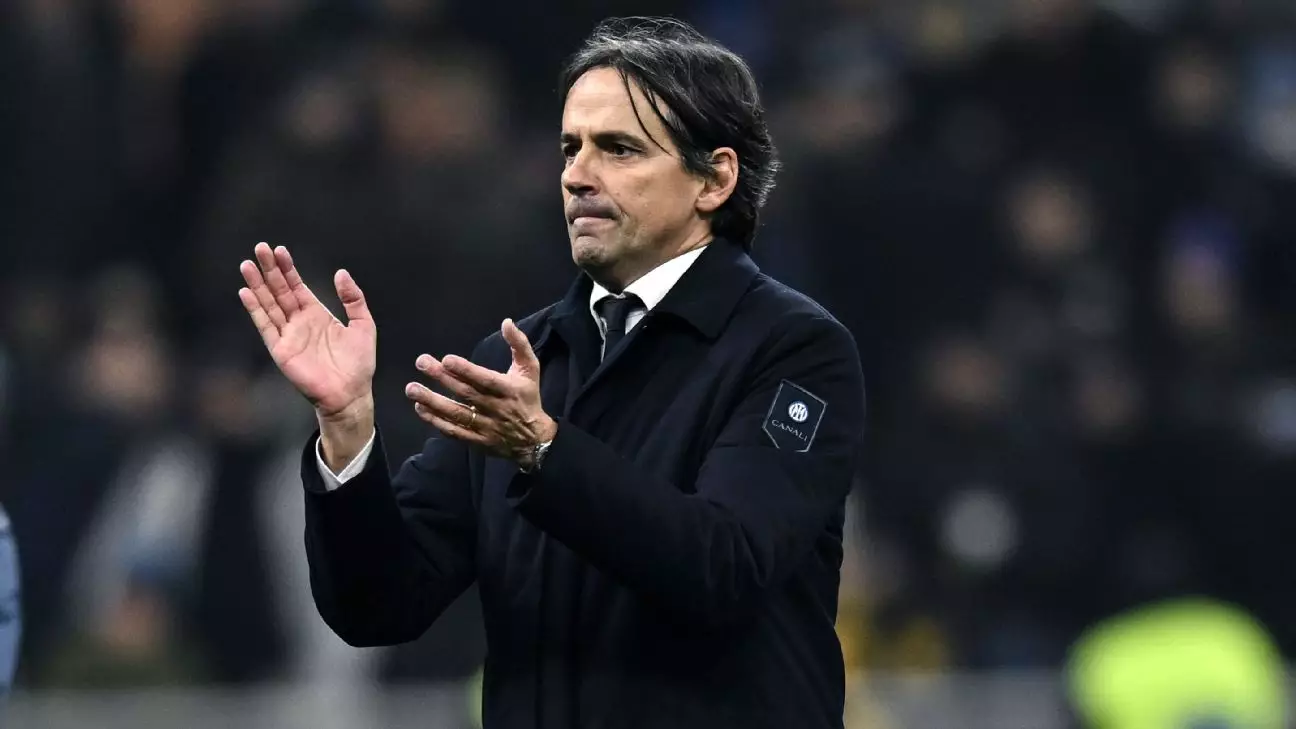Inter Milan showcased their capability to learn from past setbacks with a compelling 2-1 victory over Fiorentina, successfully avenging a prior defeat. This transformation under the leadership of coach Simone Inzaghi serves as a testament to the team’s maturity, emphasizing the importance of mental resilience in professional sports.
Inzaghi’s comments following the match highlighted the psychological aspect of the game, which is often understated in discussions about football strategies. Transitioning from a 3-0 defeat to a spirited performance against Fiorentina demonstrates not just a shift in tactics but a profound mental reset that the players underwent. Inzaghi mentioned a deliberate effort to lighten the atmosphere following the harsh loss, indicating a strategic move to alleviate pressure and foster a positive environment. This approach serves as a crucial lesson for teams facing adversity—recognizing the necessity of psychological recovery in tandem with physical preparation.
The team’s ability to regroup is noteworthy. Ahmed’s comment on the crucial need to not dwell on criticisms reflects a broader strategy often overlooked in the sporting world: maintaining mental focus despite external pressures. In a sport where the stakes are immensely high, fostering a supportive team culture can often make the difference between a floundering squad and a resilient one.
Inter’s tactical preparation for the match indicated a clear learning curve. Despite previous struggles, the players showed improved ball movement and composure during this rematch. Inzaghi praised the squad’s ability to approach both halves of the match with a maturity that was previously lacking. This speaks volumes about how a team’s mental state can affect its performance on the field.
The coach’s acknowledgment of their performance in securing second balls and maintaining balance on the pitch underscores a significant evolution in their gameplay. It’s critical to analyze how adaption, based on lessons from failures, can lead to enhanced strategies and execution during high-pressure match situations.
Another intriguing aspect is the team’s synergy, which is foundational for success in football. Their coherence on the pitch, especially after recent losses, reinforces the essential nature of teamwork. It showcases that individual players, while talented, rely heavily on collective effort and communication during matches.
On the other hand, Fiorentina manager Raffaele Palladino’s frustration regarding officiating highlights the ever-present influence of refereeing decisions on match outcomes. His assertion that a crucial, potentially game-changing decision was overlooked could leave lingering feelings of injustice within the Fiorentina camp. Such moments can be detrimental, affecting a team’s morale. Although he expressed pride in his team’s performance, the psychological toll of contentious decisions cannot be underestimated.
It raises an important discussion surrounding the role of technology in football. Although VAR is implemented to minimize errors, situations such as this—where a small margin determined a significant moment—prompt a reevaluation of its effectiveness. For teams like Fiorentina, such decisions can be pivotal in high-stakes matches, despite their performers’ confidence and self-awareness leading up to the contest.
Ultimately, the victory places Inter Milan in close contention with league leaders Napoli, affirming that every match carries weight and significance in their journey. Inzaghi’s insistence on continuing their momentum emphasizes a fundamental truth in sports: complacency can be detrimental.
Moreover, Palladino’s recognition of the quality displayed by his team in recent fixtures despite the loss illustrates a significant point about growth through adversity. Both clubs converge on a similar goal: to harness lessons learned from matches, whether victories or defeats, to fuel their ambitions moving forward.
As both teams look ahead, the improvements shown by Inter Milan and the lessons learned by Fiorentina will be critical in navigating the remainder of the season. The interplay between resilience, tactics, and officiating in football remains a multifaceted dialogue that defines both immediate outcomes and long-term trajectories of teams in this dynamic sport.

